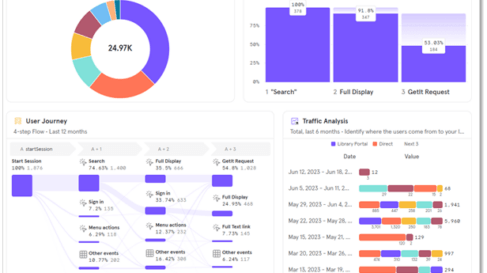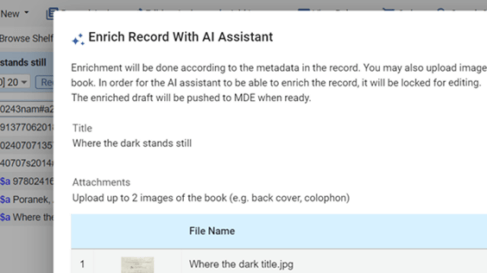Linked Open Data is the next generation of library software solutions. At Ex Libris, a part of Clarivate, we are actively working with our trusted community to develop innovative, real-life applications for this AI library cataloging technology that will transform the library experience staff and users, including students and researchers.
As part of our ongoing blog series on AI, we’re sharing our vision for a future where metadata is perpetually enhanced and updated through advanced technology, best practice methods and intricate interconnection with other libraries around the world, so all can contribute to and benefit from the collective effort.
Our development in linked open data and AI library cataloging focuses on three pillars:
- Better discoverability: Enhanced with linked open data, your local library catalog, regardless of your records format, could be connected with CDI records and enhanced with information from additional sources such as Web of Science and Wikidata so related topics are effortlessly surfaced, resulting in more robust discovery and radical new research pathways with AI library cataloging.
- Collaborative cataloging: We are actively working with the Sinopia community (several of whom are members of our linked open data focus group) on a collaborative cataloging platform where libraries work together in creating a central source for robust and highly accurate metadata that is shared across a network of other contributing libraries.
- Global interoperability: Through integration with global information sources, like ORCID and Wikidata, we envision a future where libraries are connected through an ecosystem where information flows both ways, in and out of systems, and where Ex Libris data can be exported into institutional knowledge graphs or other network spaces – and we’re exploring ways to expand these capabilities for various use cases.
Enhancing linked open data with AI Library Cataloging
Our innovation in linked open data incorporates AI technology in practical ways supporting the automation of tedious tasks that can free up librarians’ and catalogers’ time to focus on other interesting work. As linked open data is a semantic web based on BIBFRAME metadata records, using AI technology that can more easily generate these records has long-term time saving benefits alongside the exponential potential for quality improvements over time. AI can perform these tasks on a large scale to generate and ingest these data more quickly and accurately into our global network of metadata.
Our AI library cataloging model is based on trusted, curated library resources and data generating reliable results, and can help find hidden relationships between people, places and objects contained in your catalog. This will support users in surfacing and exploring surprising or little-known connections and nuances in their research areas, opening the way for exciting – and potentially world-changing – new insights, knowledge and understanding.
At Ex Libris, the use of AI technology is always done to solve the real challenges of real users, librarians, and libraries. We respect the need for privacy and intellectual property considerations, and above all, we understand the importance of using trusted scholarly content to generate results and information.
This article is the second in our series on AI. Read our previous blog post on Conversational Discovery. To learn more about our ongoing innovation with linked open data and AI library cataloging, watch this webinar.










